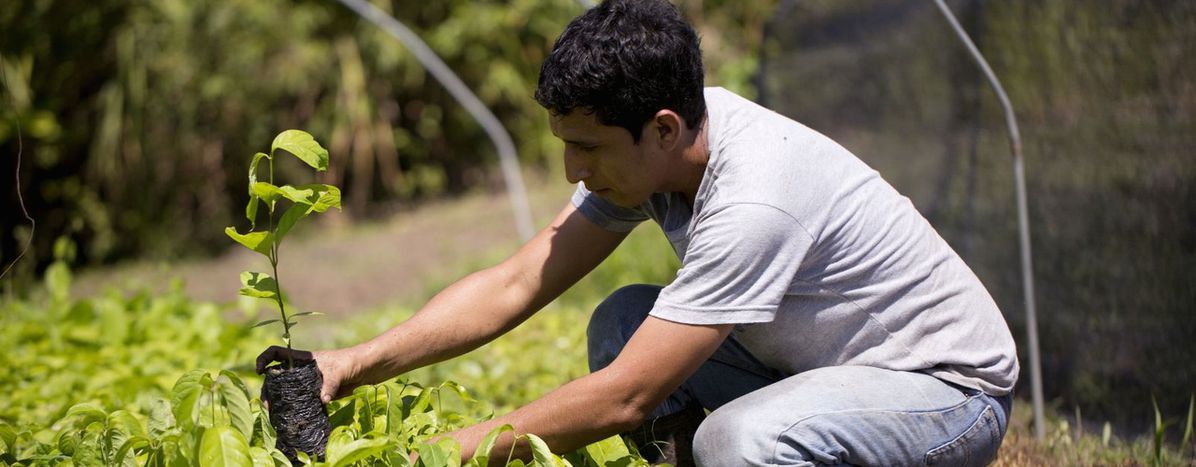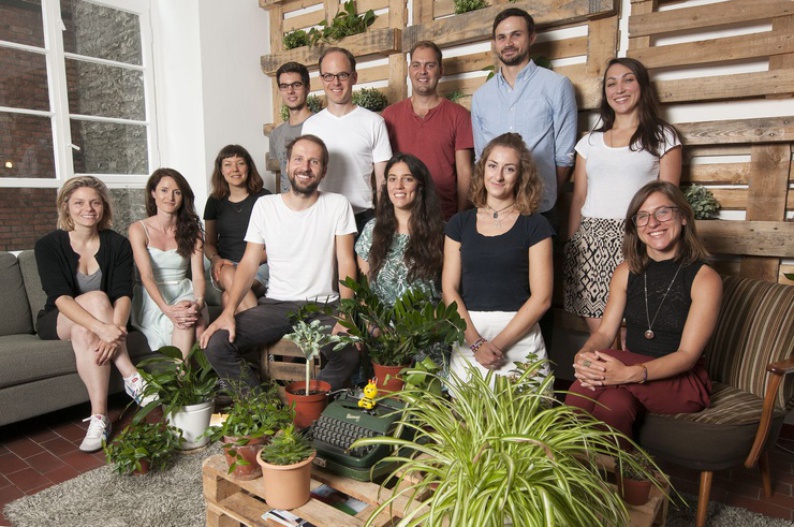
Ecosia: Business for the greater good
Published on
Ecosia is a web search engine where you can search for anything you want. Like any other search engine, it earns its profits from advertising. But Ecosia is unique because every month, it invests at least 80% of its profits into planting trees. And have the seeds planted been growing since they started in 2009? Absolutely.
cafébabel: How do you turn advertising money into 'green money'?
Fátima T. Gonzáles [content lead]: Of what we receive through advertising, we have decided that at least 80% of those profits should be donated to planting trees. We work with different planting projects across the world, like Madagascar, South America, Asia, etc. Each project has its own needs. For instance, the rainy season in Burkina Faso is happening right now, whereas the rainy season in Indonesia only starts later on in the year. Instead of just throwing the money at projects because we have to, we engage in conversations with the project leaders to understand exactly when they need that money.
cafébabel: How do you choose the projects?
Fátima T. Gonzáles: At the very beginning it was Christian Kroll (the founder and current CEO) who, although he didn't plant trees, decided on the projects. He went to the big names because he had no experience. Over the years, we refined our focus: we now have a “tree planting officer”, and his field of expertise is tree planting and landscape restoration. Ecosia is not planting trees for the sake of planting trees; the initial goal is to help fight climate change, but we also impact local communities. By planting trees, we are also creating an alternative economic model for them. We have to balance both sides: tree planting for the environment but also for the people.
cafébabel: You've been pretty successful over the years, how do you measure your own success?
Fátima T. Gonzáles: Ecosia is two sided. On one hand, we are a tech company with a search engine. On the other hand, we are planting trees. The way we measure success is through these two things. We always start from the number of trees planted. We do not aspire to reach a certain amount of income, but to reach a certain number of trees. We have planted 10 million trees so far, and we are on our way to reaching at least 30 million by the end of 2017.
Of course, as a search engine, we need to calculate the number of users. Right now, we have 34 million weekly searches and 5 million monthly users. That is quite a lot for an alternative search engine, and represents approximately around 600,000 Euros per month in revenue.
 cafébabel: Ecosia wants to fight against climate change, but relies on an energy-consuming medium (the internet, data centres, etc.). Is that not contradictory?
cafébabel: Ecosia wants to fight against climate change, but relies on an energy-consuming medium (the internet, data centres, etc.). Is that not contradictory?
Fátima T. Gonzáles: Microsoft, just like Google, runs on clean energy as their data centres run on renewable energy. It is a huge step forward. We need to find alternatives to make energy consumption monsters more environmentally friendly. And that’s what Ecosia does as well; you can’t stop the world from being what it is, people will keep searching. Nonetheless, isn’t it better if it allows us to plant trees?
cafébabel: Does Ecosia contribute to maintaining a form of capitalism and a consumerist society by using the internet and making money from ads?
Fátima T. Gonzáles: The problem is not that straightforward. The main question is: will the system change? We have evolved the way we have. Now, we can only try to turn it into something green. Ecosia tries to change the logic of business (for the sake of business) at every cost, including the environmental cost. The standard for business should be to give back to society. Right now, we call it 'social business', but it should be what every business does.
cafébabel: What do you think about the EU's "clean energy package” which the European Commission presented last November?
Fátima T. Gonzáles: It all came way too late, but let’s not be pessimistic. The targets are good even if they could be even more ambitious. We need to be much faster and leverage many more machines and promote digitalisation to try to solve this issue. It is great - more money is going into clean energy. However, the package on its own is not enough; it has to go hand in hand with other changes like capitalism. We need to think further and wider. We have to stop relying on consuming more or having to grow to create jobs. That needs to change for the energy package to go forward. Moreover, consumers need to force things to change as well. Ecosia exists thanks to its users. Their choice to use Ecosia is what plants trees. The consumer is the key. If we don’t change, nothing changes.
--
This interview was written in the context of the European Sustainable Energy Week, kicking off on 19-22 June in Brussels.



